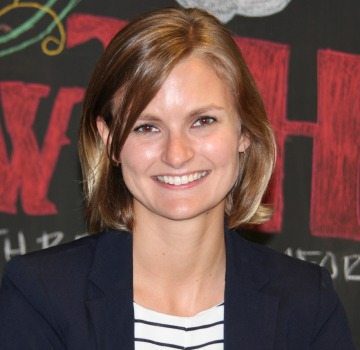
Over the past couple of months, WashingtonExec has presented an article series highlighting “Millennial Mavericks” who are finding success in the government contracting industry, despite facing numerous challenges in the form of negative stereotypes that have been assigned to this generation.
Companies are also experiencing challenges, as Millennial workers have broken the mold for traditional management practices. For example, Millennials are not motivated by the same benefits that keep their older counterparts happy in the workplace. In fact, Millennials do not display the same level of loyalty to their employers as companies have previously enjoyed, making retention a serious issue.
Smart companies are changing their benefit programs to reflect this paradigm shift, so they can get the most out of Millennial workers, even if those workers may not stay as long as they’d like. Some firms are scrapping annual bonuses for a model of “micro-raises” that reward employees in multiple, smaller increments. This model provides the constant feedback many Millennials seek, while reviewing and rewarding them on a shorter-term basis, since their tenures at the company might be shorter as a whole.
When it comes to managing Millennials, a good starting place is to understand what makes this generation tick, so company programs and management styles can be leveraged to get the most productivity out of these young workers. If you haven’t done so already, read our “Millennial Mavericks” series to get a head-start on understanding Millennials, who will comprise a majority of the workforce by 2025.
Our next featured Millennial is Marisa Hale of Sapient Government Services (Sapient). Hale is a Senior Associate at Sapient, where she is working on a comprehensive solution replacement of a legacy system responsible for determining the health care shortage of different areas on the country. Hale graduated from Carnegie Mellon University in 2009 with a bachelor of science in economics.
WashingtonExec: When you think about the Millennials generation, what comes to mind? What positive and negative stereotypes surround Millennials, and are these stereotypes warranted?
Marisa Hale: I think Millennials are known for their tech-savviness, idealism, and feelings of entitlement. To me, it seems that every generation must grow up more tech-savvy and idealistic than the last, so I wonder if every generation gets that reputation for a while. As for the entitled part, I work with a lot of hard-working, energetic young people, so I don’t see it.
WashingtonExec: What do you think are the biggest differences between Millennials and other generations – professionally and personally?
Marisa Hale: Millennials are generally pretty creative. There weren’t a lot of jobs when many of us entered the workforce. I’ve seen a lot of people in my generation come up with great ideas to make a living and set themselves apart. People are forced to be more entrepreneurial since they may not have easily gotten a job right out of school.
WashingtonExec: What is the best personal or professional advice you have received?
Marisa Hale: On my first day, someone told me to ask questions. I took that to heart, and now I ask every question I have, no matter how rudimentary. People at Sapient are so willing to help others learn and grow that I’ve been able to soak up knowledge about things I had no previous experience with.


